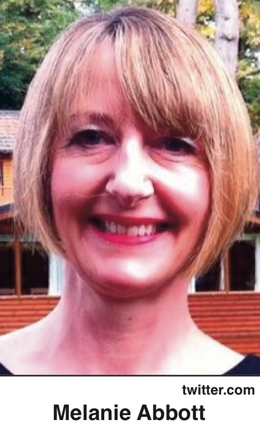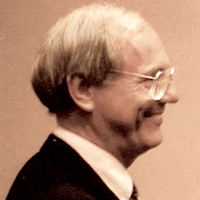Rascals case in brief
In the beginning, in 1989, more than 90 children at the Little Rascals Day Care Center in Edenton, North Carolina, accused a total of 20 adults with 429 instances of sexual abuse over a three-year period. It may have all begun with one parent’s complaint about punishment given her child.
Among the alleged perpetrators: the sheriff and mayor. But prosecutors would charge only Robin Byrum, Darlene Harris, Elizabeth “Betsy” Kelly, Robert “Bob” Kelly, Willard Scott Privott, Shelley Stone and Dawn Wilson – the Edenton 7.
Along with sodomy and beatings, allegations included a baby killed with a handgun, a child being hung upside down from a tree and being set on fire and countless other fantastic incidents involving spaceships, hot air balloons, pirate ships and trained sharks.
By the time prosecutors dropped the last charges in 1997, Little Rascals had become North Carolina’s longest and most costly criminal trial. Prosecutors kept defendants jailed in hopes at least one would turn against their supposed co-conspirators. Remarkably, none did. Another shameful record: Five defendants had to wait longer to face their accusers in court than anyone else in North Carolina history.
Between 1991 and 1997, Ofra Bikel produced three extraordinary episodes on the Little Rascals case for the PBS series “Frontline.” Although “Innocence Lost” did not deter prosecutors, it exposed their tactics and fostered nationwide skepticism and dismay.
With each passing year, the absurdity of the Little Rascals charges has become more obvious. But no admission of error has ever come from prosecutors, police, interviewers or parents. This site is devoted to the issues raised by this case.
On Facebook
Click for earlier Facebook posts archived on this site
Click to go to
Today’s random selection from the Little Rascals Day Care archives….
Click for earlier Facebook posts archived on this site
Click to go to
Today’s random selection from the Little Rascals Day Care archives….
How could anyone doubt ‘shoes made of baby skin’?
 May 5, 2015
May 5, 2015
“Its members are, it’s claimed, drawn mainly from a school and church in Hampstead (a North London suburb). They are said to wear shoes made of baby skin, to dance with the skulls of dead babies and to sexually abuse young children. But the (satanic ritual) cult doesn’t exist. The claims are, according to a High Court Judge, ‘baseless’ and those who have sought to perpetrate them are ‘evil’….
“Why, after a police inquiry and a family court judgment which unequivocally rubbished the notion of satanic abuse in Hampstead, are the allegations still proliferating on the Internet and being spread all over the world? We hear from the supposed cult members who have had their personal details and photographs published online and received death threats. And we ask about the welfare of the two children at the centre of it all who were coerced into fabricating the fantastical story….”
– From “The Satanic Cult That Wasn’t” by Melanie Abbott on BBC Radio (April 23)
This half hour of BBC coverage skillfully demolishes every iota of the Hampstead claims, but of course facts aren’t what engage the eagerly gullible. Since video of the 8- and 9-year-old siblings telling their concocted horror stories was uploaded onto YouTube, it has been watched more than 4 million times.
Psychiatrist’s theory bolstered day-care prosecutions
Feb. 2, 2019
First of two parts
The name of Dr. Roland Summit, key supporter of the McMartin Preschool prosecution, no longer resonates in psychiatry, but the “child sexual abuse syndrome” he conjured up did a lifetime’s worth of damage to its countless victims.

theawarenesscenter.org
Dr. Roland Summit
As described by Debbie Nathan (Village Voice, Jan. 12, 1990), “[Summit’s] theory about incest… argues that if there is evidence of sex abuse and a child denies it, this is only further proof that it happened and a therapist should use any means necessary to help the child talk…. If they later recant, that means they are under family pressure to protect the father and their turnabout is further proof of the crime.
“So no matter how much coercion was used to get an accusation and no matter if a child later retracted it, once Summit’s incest theory was applied, a charge of abuse became irrefutable. Child protection workers ignored the fact that this logic had little to do with day care. After all, why would children staunchly defend abuse to protect an adult who wasn’t part of the family? And if they had been so brutally attacked at school, why wouldn’t they tell their parents?
“Therapists and investigators came up with all sorts of rationales. One was the teachers threatened them by slaughtering animals and warning that the same thing would happen to their parents if they told….”
Summit wasn’t among the expert witnesses in the Little Rascals Day Care case, but his supposed syndrome warped therapists’ interpretation of every child-witness interview. And those imaginary “threatened parents” showed up in this 1995 open letter from Little Rascals parents: “Many [children are now] old enough to realize that Bob Kelly can’t work his threatened evil to kill their families.”
Next: Collusion by psychiatrist and patient
![]()
‘Black helicopters’ over Edenton? Sure, why not?
Feb. 27, 2015
“…. A social worker from North Carolina informed the group (the Society for the Investigation, Treatment and Prevention of Ritual and Cult Abuse) that in the day-care sex-abuse case she was investigating, she thought she remembered the kids talking about black helicopters. She said she would look into it.”
– From “Conspiracy Theories and Paranoia: Notes from a Mind-Control Conference” by Evan Harrington in the Skeptical Inquirer (September-October 1996)
The “ritual and cult abuse” conference took place in Dallas in March 1995, several years after the trials of Bob Kelly and Dawn Wilson (and just a couple of months before the North Carolina Court of Appeals overturned their convictions). But I wouldn’t be surprised if the social worker chatting with Dr. Harrington was a prosecution therapist still eagerly accumulating and broadcasting claims … this one perhaps.
View from 1908: ‘The lawyer alone is obdurate’

iastate.edu
Paul Kix
May 5, 2016
“Psychologists have long recognized that human memory is highly fallible. Hugo Münsterberg taught in one of the first American psychology departments, at Harvard. In a 1908 book called ‘On the Witness Stand,’ he argued that, because people could not know when their memories had deceived them, the legal system’s safeguards against lying – oaths, penalties for perjury, and so on – were ineffective.
“He expected that teachers, doctors, and politicians would all be eager to reform their fields. ‘The lawyer alone is obdurate,’ Münsterberg wrote.”
– From “Recognition: How a travesty led to criminal-justice innovation in Texas” by Paul Kix in the New Yorker (Jan. 18)
Dr. Munsterberg saw clearly the stubbornness of lawyers, even if he may have overestimated the open-mindedness of those other callings.
![]()











0 CommentsComment on Facebook